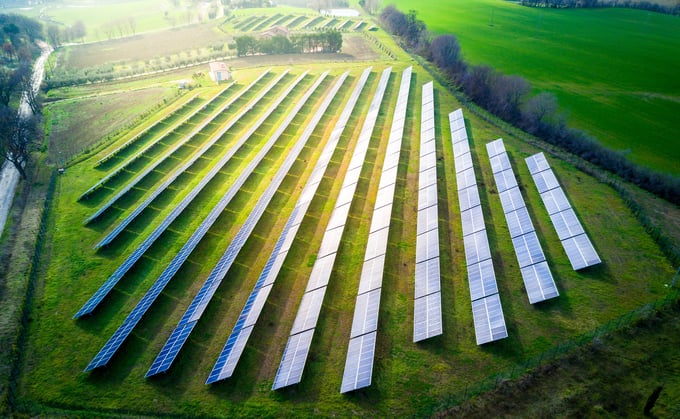Recent events have thrown the UK’s dependence on fossil fuels into sharp relief. Russia’s invasion of Ukraine and Germany’s decision to pause approval of the Nord Stream 2 pipeline have fuelled global volatility in gas prices, making energy-intensive businesses vulnerable to unexpected costs.
The idea that the UK relies on Russian gas is an exaggeration. Last year, imported gas from Russia made up less than 4% of the UK’s total gas supply. However, research from the Energy and Climate Intelligence Unit (ECIU) finds that even this relatively small proportion of our energy mix could see the UK spending £2.3 billion on Russian gas over the course of a year. That is £6.3 million of UK money going directly to Russia every day, but the problem is even bigger than that: not just reliance on Russian gas, but reliance on gas in general.
The challenges for the UK (businesses)
The UK is one of the heaviest gas consumers in Europe. We use gas not just for heating and industrial processes, but also rely on it heavily for generating electricity. Every month over the past two years has seen gas as the main source for UK-generated electricity (with the exception of October 2021, when it shared first place with wind power). This not only makes us vulnerable to global supply issues and price volatility, but slows progress towards our legally binding target of net zero emissions by 2050.
Businesses can’t afford to wait for government solutions
The government is attempting to tackle the problem through its energy security strategy, which involves heavy investment in new renewable capacity. But this strategy deals with the medium to long term: up to 50GW of offshore wind and five times the solar by 2030, a five-fold increase in rooftop solar by 2035 and so on. The problem for UK businesses is that they can’t afford to wait this long when the problem is hitting their budgets right now. Energy retailers are being squeezed by the crisis, which means that almost no businesses can expect to have their supply contract renewed on the same terms as before. Even those well within contract must consider the risk of their supplier going out of business or making unwelcome new demands.
Security over supply and certainty over pricing
This is why many UK businesses are taking control of their own energy supply and investing directly in renewables. Renewable energy for business might take the form of on-site generation assets, a corporate power purchase agreement (CPPA) or a combination of the two.
However you choose to go about it, the goal is security of supply and certainty over pricing. For many businesses, this step is also key to reducing their emissions and making progress towards their climate goals. But any valid renewable energy business plan has to tackle the elephant in the room: the intermittency of renewables. When the sun isn’t shining and the wind isn’t blowing, how will your business make up the gap between generation and consumption? This usually means getting some energy from the grid, with various mechanisms to certify it as green. (Our guide to CPPAs explains that some of these mechanisms are more valid than others.)
The importance of granular data
Closing the gap between renewable output and consumption is also crucial, but you can only do this if you know what is happening with the energy mix at any given time. Granular data on the supply mix allows you to optimise consumption to maximise your usage of self-generated power. You can also choose the best times to charge up any battery storage or make use of previously stored energy. But without this data, it is impossible for any business to make the most of its renewable assets. You are missing the opportunity to reduce your dependence on fossil fuels and lower your emissions.
Our guide for large energy users explains exactly how you can use data to take control of your energy sourcing.
Download your free copy of Avoiding the greenwash: a guide for large energy users


